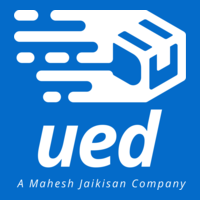Engineering feasibility
The assessment of the practicality and viability of a proposed project or solution. whether a project can be implemented based on technical, economic, legal, operational, and scheduling .

Engineering-Based Business Feasibility Consultancy
Engineering-Based Business Feasibility Consultancy At UED provides in-depth analyses for evaluating the viability of engineering projects and businesses. Our consultancy assesses the technical, operational, and financial aspects of proposed ventures, ensuring they align with industry standards and market needs. This includes evaluating site conditions, technology requirements, resource availability, and capital investments. We deliver comprehensive feasibility reports that outline risk assessments, cost-benefit analyses, and project timelines, helping clients make informed decisions.
Through expertise in conceptual design, process optimization, and value engineering, UED ensures that engineering-driven businesses are not only feasible but also positioned for long-term success in competitive markets. We follow holistic approach to assessing the potential of engineering-driven ventures. This involves evaluating critical aspects such as market demand, technological feasibility, infrastructure needs, and financial projections. We focus on identifying potential challenges and risks that may arise during the development and operational phases of the business, providing mitigation strategies to ensure smooth execution.
Major Consultancy Area
In engineering-based business feasibility consultancy, several critical areas ensure successful project execution. Conceptualization involves generating and refining innovative ideas that align with client goals and market demands. This is followed by a comprehensive feasibility assessment, evaluating the project’s viability across technical, economic, legal, operational, and scheduling dimensions to identify potential risks and challenges.
Next, compatibility checks ensure that new solutions integrate seamlessly with existing systems, minimizing disruptions. Project estimation involves accurately predicting resources, time, and costs to facilitate effective budgeting and planning. ROI estimation quantifies expected financial returns, enabling informed investment decisions. Financial input is crucial for managing budgets and cash flow throughout the project lifecycle. Finally, the execution phase involves implementing the plans while coordinating resources and engaging stakeholders. Together, these areas form a holistic approach to engineering feasibility consultancy, guiding clients from conceptualization to successful project completion while ensuring alignment with business objectives.
- Market Research
- Conceptualization
- Feasibility Studies
- Compatibility
- Project estimation
- ROI estimation
- Financials input
- Execution Plan
Engineering Consultancy
Turnkey Engineering Projects
Industrial design and Architecture
Factory Audit and Quality assurences
Engineering Procurement and Sourcing
Engineering Manpower Sourcing
Sick Industry Running and Revival
Need Help?
Connect with us now to discover how our consultancy services can transform your ideas into successful projects.
Let's be great together
Engineering Intelligence for Industrial Projects
Deep industry knowledge to create tailored solutions that meet the unique challenges of each project.
Site Analysis and Data Collection
Assess land, utilities, environmental factors, and regulatory compliance
Technical and Financial Feasibility
End to End Industrial Project Execution from Concept to Commissioning
Environmental and Risk Assessment
Ensure regulatory compliance, identify risks, and mitigation strategies.
Deliverables and Project Timelines
feasibility with engineering designs, and project schedule with key milestones.
F. A. Q
Common Questions
Turpis nostra ipsum nisl consectetur quam ut elit suscipit elementum cubilia.
An engineering feasibility study is an analysis that evaluates the viability of a proposed project by examining its technical, economic, legal, and operational aspects.
It helps stakeholders make informed decisions by identifying potential challenges, assessing costs and benefits, and ensuring alignment with market needs and regulations.
The main components typically include project description, technical feasibility, economic feasibility, market feasibility, regulatory considerations, risk analysis, and an implementation plan.
The duration can vary widely based on the project's complexity and scope, ranging from a few weeks to several months.
Feasibility studies are usually conducted by engineering consultants, project managers, or specialized teams with expertise in relevant fields.
While a feasibility study assesses the viability of a project, a business plan outlines the strategy for executing the project, including marketing, operations, and financial projections.
Costs vary depending on the project's complexity, scope, and the consulting firm. It's best to request quotes from multiple firms for comparison.
Feasibility studies are beneficial for a wide range of projects, including construction, infrastructure, technology development, and large-scale operational changes.
While it helps identify potential issues and inform decision-making, it cannot guarantee success. External factors and changes in circumstances can still impact outcomes.
The results are typically presented to stakeholders, who will use the findings to decide whether to proceed with, modify, or abandon the project.

